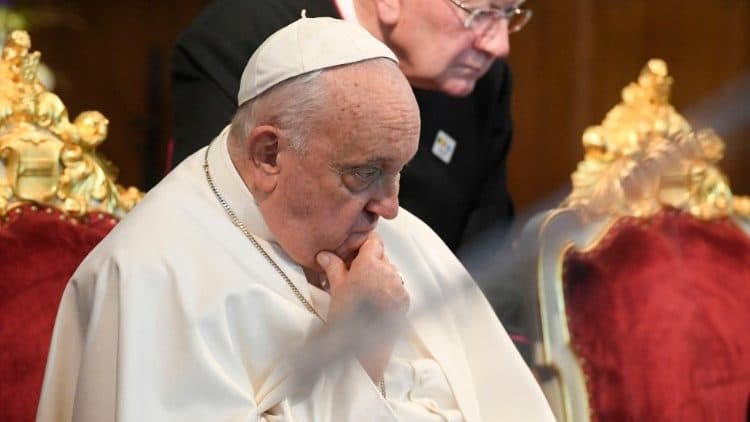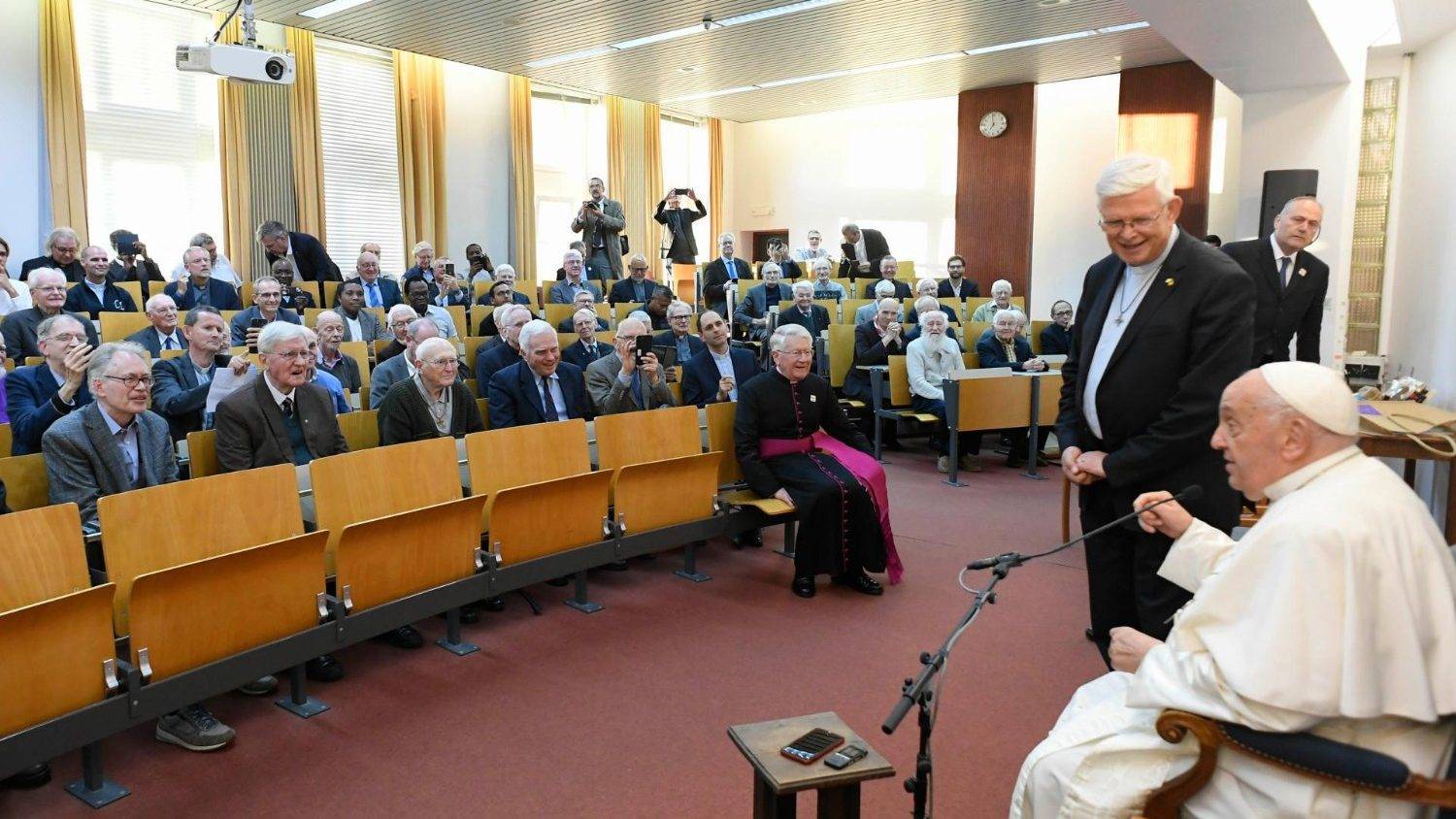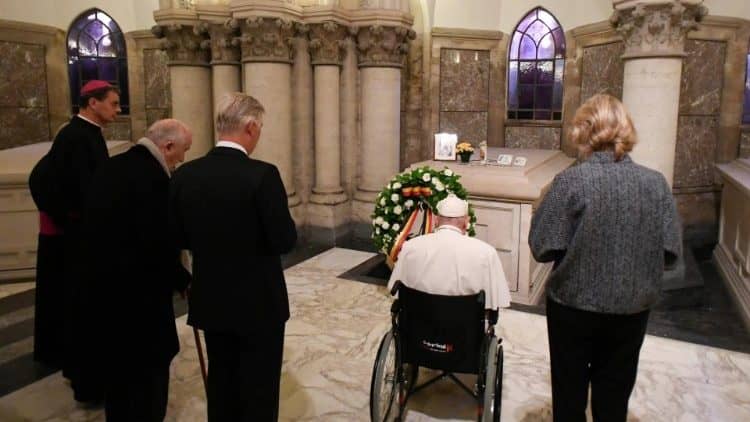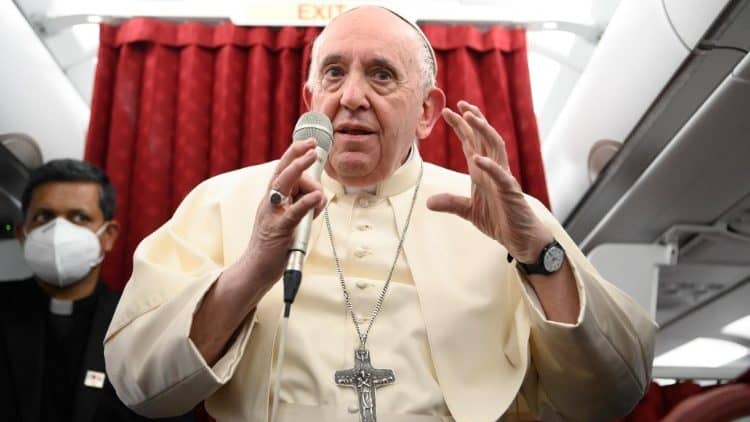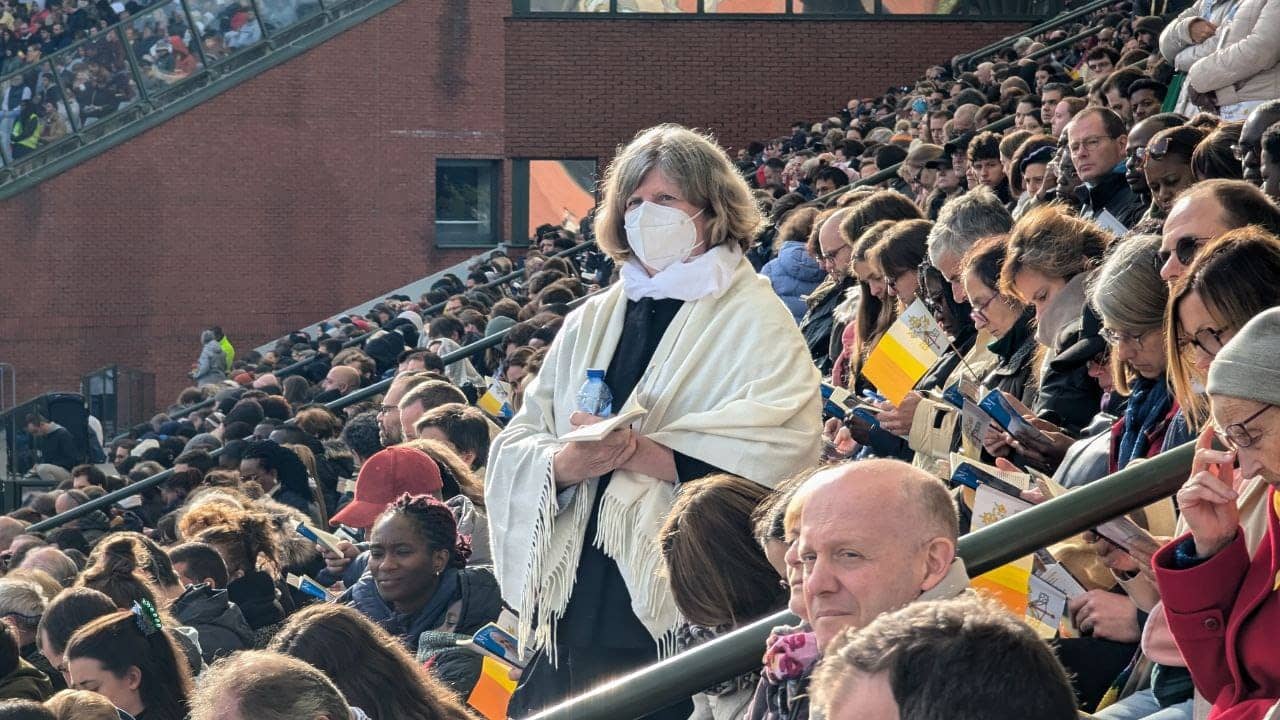BRUSSELS – After Pope Francis met a group of survivors of clerical sexual abuse in Belgium Friday, one advocacy organization has said such gestures are not enough, but the Church must pursue real reform.
On Friday evening, after being scolded by Belgium’s Prime Minister Alexander De Croo over the country’s clerical abuse scandals earlier that morning, the pope met with a group of 17 abuse survivors at the Vatican’s nunciature in Brussels.
A Sept. 27 Vatican statement said the meeting lasted for over two hours, and allowed victims to “bring to the pope their own story and their own pain to the pope, and to express their expectations regarding the church’s commitment against abuse.”
Pope Francis, the statement said, was able to “listen and draw close to their suffering,” and he thanked them for having the courage to tell their stories.
He also expressed his own “feeling of shame” for what they endured as children at the hands of the priests they were entrusted to, and he took notes on the requests they made “in order to study them.”
Pope Francis met with the victims after holding private meetings with De Croo, King Philippe of Belgium, and national authorities and with university professors as part of his Sept. 26-29 visit to Luxembourg and Belgium, which has been hit hard by abuse and coverup scandals.
REALTED: In Belgium, Pope Francis will play to a tough room
In light of the pope’s meeting with survivors, abuse survivor advocacy group Bishop Accountability issued a statement Friday saying the meeting in itself was not enough to make up for the damage done to victims.
Calling the meeting mere “damage control,” the organization noted that Francis has met with victims several times, in Portugal in 2023, in Canada in 2022, in Ireland in 2018, in Chile in 2018, and in the U.S. in 2015.
Each time, the organization said, “he follows the same PR playbook: he meets with victims, expresses shame, and promises change.”
Friday’s meeting with Belgian survivors “will have few meaningful consequences,” it said, noting that while might console the 17 individuals who participated, “it won’t change the systemic corruption in the Belgian Church, and not one child in Belgium will be safer because of it.”
The pope’s meetings with survivors are nothing more than PR, not reform, the organization said, saying, “at this point in his papacy, the tactic is tired. An apology without effective reform is worse than meaningless. It’s disrespectful.”
They condemned Francis’s decision not to meet with abuse survivors in East Timor earlier this month and advocated for a harder implementation of the Church’s “zero tolerance” policy on clerical abuse, as well as a revision of his 2019 legislation for keeping bishops accountable, Vos Estis Lux Mundi.
The group also urged the Dicastery for the Doctrine of the Faith to publish its archive on abusers in a bid to foster greater transparency.
Earlier on Friday De Croo condemned the actions of the Church’s hierarchy in regard to the abuse scandals, saying, “if something goes wrong, a cover-up cannot be accepted. It harms the valuable work done by everyone. And this is why words are not enough today. Concrete steps are needed.”
In order to move forward, he said, the Church must put victims first and “clarify its past.”
Pope Francis in his own speech acknowledged the impact of the clerical abuse scandals and called them a source of “shame” for the Church and a “crime” that must be stopped.
Follow Elise Ann Allen on X: @eliseannallen
